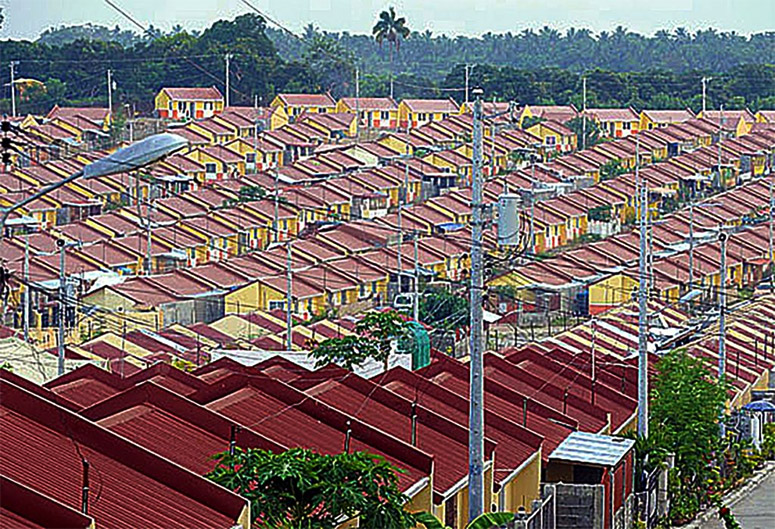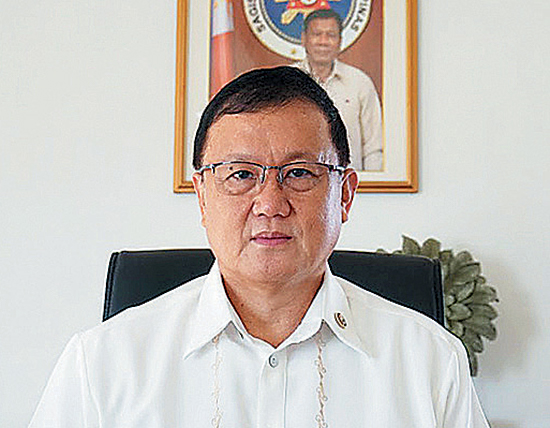Presumptive President Ferdinand “Bongbong” Marcos Jr. is faced with daunting challenges that must be immediately addressed if he is to fulfill his promise of pulling the country out of its economic slump, and one key sector that could help make that happen is the housing and construction industry.
Secretary Eduardo Del Rosario of the Department of Human Settlements and Urban Development (DHSUD) said the 6.5 million housing backlog remains the biggest challenge for the incoming government. It doesn’t help that the National Economic Development Authority (NEDA) did not include the sector in its list of priority areas in the next few years.
“As any other new agency, DHSUD has been struggling in securing the required chunk from the General Appropriations Act,” Del Rosario told Property Report PH.
The DHSUD was created by Republic Act 11201 in 2019 that merged and assumed the functions of separate shelter agencies. The Philippine Statistics Authority last month said the construction sector grew by 10 percent in 2021.
For 2022, the agency has proposed P76 billion but were given P6.4 billion, “a meager amount considering the 6.5 million housing gap that we have to address,” Del Rosario said.

He warned that reducing the backlog is compounded by climate, disaster and public health risks that also threaten the safety and sustainability of communities.
He said DHSUD needs at least P50 billion annually to fund its housing programs.
The government, the DHSUD chief said, should also review the supply and demand situation in the housing sector, particularly on the availability of spaces vis-à-vis population growth.
“Creating spaces for human settlements and urban development is a must. For this, we are pushing for policies on developing compact cities, encouraging mixed land use and ensuring social mix,” Del Rosario said.
Such can be achieved through the creation of a national network of public, open, and green spaces to properly maximize land resources, he said.

New townships, new settlements
The new government should also develop a framework and set of strategies for the establishment of estate and new townships, new settlements, urban renewal programs, prototypes of urban development interventions, and government centers, he said.
Del Rosario also pushed for the development of the National Urban Database/Information Management System to have an inventory of resources and beneficiaries, among other important data, to serve as an important guide to planning and implementation of programs.
Since the DHSUD depends on the cooperation of its stakeholders, the government also continues the program of harmonization of efforts/policies among government agencies in the sector, including the establishment of housing one-stop processing centers to facilitate ease of doing business.
Climate change
“As one of the focus areas in the Philippine Development Plan, the National Climate Change Action Plan must also be updated to promote climate resilience and sustainability in housing communities,” Del Rosario said.
“And last but not the least, housing finance for informal settler families (ISFs) and low-income earners/public rental housing must also be strengthened to provide better access to affordable housing,” he said.
The incoming 19th Congress should also increase the DHSUD’s budget to finance its priority programs and projects to deliver its mandate required by RA 11201, he said, adding the agency is also fully supporting Senate Bill 203 and SB 1774, which both seek to fast-track the finalization of a concrete national housing financing strategy.
SB 203 proposes an annual budget of P135 billion for the DHSUD or a total of P2.7 trillion for a 20-year period to carry out its housing programs. Funds will also be allocated for the National Housing Authority, the Social Housing Finance Corp. and the National Home Mortgage Finance Corp.
SB 1774, meanwhile, proposes an annual appropriation of P50 billion, or a total of P1 trillion over a 20-year period for DHSUD.
The passage and enactment of the bills, however, should not prevent the government from conducting “a wide-scale review of existing laws and policies, some of which are outdated and need enhancing in order to keep pace with rapid changes in the sector,” he said.
Priority actions of Congress should also include the passage of the National Land Use Act, updating of the Urban Development and Housing Act, Urban Land Reform Law, Environmental Impact Statement System, policies on subdivision development, resilient recovery, revenue generation, and land supply and management, among other legislation, he also said.
Del Rosario said the housing sector has achieved the highest performance in annual housing production and financing from 2016 to 2021, The record was pegged at 197,886 average annual accomplishment, a much higher figure than those of previous administrations since 1975. In total, 1,088,373 units which feature basic dwelling needs, at the very least, were produced and financed at the end of 2021.
He said the accomplishment represents 86 percent of the 1,267,198 units targeted under the Philippine Development Plan from 2016 to 2022.
“On a macro-level perspective, this record has been instrumental to the growth of the housing sector that also contributed to the country’s overall economic performance. Despite the gruesome effect of the COVID-19 pandemic, the sector remains robust through the synergy of partners both in the government and the private sector,” Del Rosario said.
